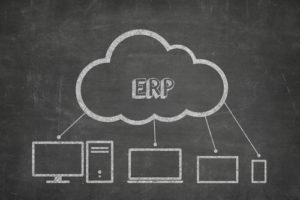
Concerns to Address When Upgrading to ERP
At some point in every company’s development, there will come a point when the business needs to re-examine its processes and streamline aspects of its operation into a modern, simplified, and powerful solution. For many growing businesses, this solution comes in the form of enterprise resource planning software (ERP).
However, a successful ERP system hinges on implementation. Poorly integrated ERP can lead to further problems down the road and can be hard to fix. Here are several concerns to address when upgrading to modern ERP...
ERP Reliability
First of all, when upgrading to ERP, you should consider what would happen if the software were to crash and how much work it would take to get it back up. Would this be detrimental to your business? Could it threaten the existence of your company? We imagine it probably would. It is for this reason that you need to consider reliability and include fail-safes, like a trustworthy ERP partner, in your implementation and beyond when selecting a new ERP system and implementation/support partner.
Assess your previous software solutions
Before stepping forward, it is important to look back and assess what has been successful or unsuccessful in your current software solution.
- What has been useful for employees and executives in your current situation?
- Which processes or complications have made you decide it is time to upgrade?
How implementation and integration will be handled
The company with whom you contract out the ERP software will help you with your implementation and support (we are one such company). However, there will need to be people on your team who assist in this transition to establish processes and automation of functions that will be useful to your organization. Can you afford to have useful members of your team dedicate time to this project?
Research other companies’ solutions
One way to develop great strategies for your implementation is to see what other companies have done. Review products that similar businesses are using and see what is and is not working for them. This sort of research can help you make an informed decision about what product will serve you best.
When will you see an ROI from ERP?
At the end of the day, you need to ask yourself if this software solution is going to make you money. Based on the initial costs, it’s important to calculate what you will be saving in terms of time, efficiency, and improvement of processes to see when you will get a return on your investment (ROI).
It may be time for your business to consider upgrading solutions. Navigator Business Solutions is here to help. Learn more about our cloud ERP solution and services here.

